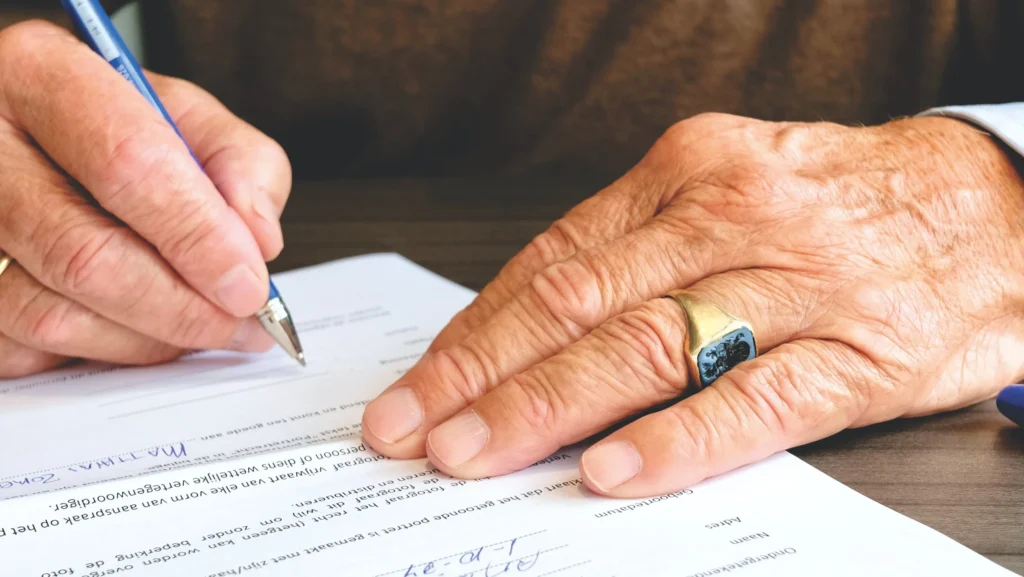Buying a used car can be incredibly nerve-wracking, especially when it comes to ensuring that you buy a model in good condition and free of serious defects. Fortunately, consumer rights law offers some protection against this issue with the Lemon Law. But does Lemon Law apply to used cars? The answer is yes – but there are certain conditions required before the lemon law can take effect for used cars. In this blog post we will dive into those requirements and discuss how the Lemon Law applies to second-hand vehicles.
Contents
What is Lemon Law?
The Lemon Law is a set of protections for consumers who buy or lease defective cars from manufacturers. The law states that in the event of a defect – such as poor engine performance, failure to start, transmission problems, etc. – the manufacturer must repair the issue within a reasonable amount of time and without excessive costs on behalf of the consumer. If the manufacturer fails to do so, then the consumer is entitled to a refund or replacement vehicle as compensation.
What is the purpose of a Lemon Law?
The purpose of the Lemon Law is to provide consumer protection against faulty or malfunctioning vehicles. By making manufacturers responsible for repairing defective cars, the law offers assurance that consumers are not stuck with a vehicle that doesn’t work and may also gives buyers confidence in buying from certain brands.
How does the Lemon Law work?
In order for the Lemon Law to take effect, there must be a defect that substantially impairs the use, value or safety of the car. The consumer must first notify the manufacturer of the defect and give them an opportunity to repair it within a reasonable time frame. If they fail to do so, then the Lemon Law will come into effect and provide compensation to the consumer.
Does Lemon Law apply to used cars?
So, does Lemon Law apply to used cars? Yes, the Lemon Law can apply to used cars. However, the requirements for when it takes effect are slightly different from new car purchases.

How can used car buyers claim under the Lemon Law?
In order for a used car buyer to be able to make a claim under the Lemon Law, they must show that:
- The vehicle was purchased from an authorized dealership;
- The seller made a written or verbal representation of the vehicle’s condition;
- The defect was present prior to purchase and affected the car’s safety, use, or value.
Furthermore, the used car must be returned to the dealer within a certain amount of time in order for them to make the claim. This timeframe is usually outlined in state lemon law regulations and varies from state to state.
Warranties for used car Lemon Law
When it comes to used cars, most manufacturers will provide a warranty for the vehicle’s condition and any defects it may have. This warranty is typically valid for up to 12 months or 12,000 miles (whichever comes first). If the car does not meet the conditions of the warranty, then you may be eligible to receive compensation from the manufacturer under the Lemon Law.

What happens if a used car buyer is successful in their Lemon Law claim?
If the used car buyer succeeds in their lemon law claim, they may be entitled to a refund or replacement vehicle. The damages awarded are typically based on the type of defect and how long it took for the issue to be resolved. It’s important to note that the lemon law does not apply to vehicles older than a certain age, usually three or four years.
Common misconceptions about Lemon Laws and used cars
The most common misconception about Lemon Laws and used cars is that they do not apply to second-hand vehicles. While the law’s requirements for new and used cars are slightly different, it is still possible for a used car buyer to make a successful claim under the Lemon Law. It’s also important to note that the Lemon Law does not cover cosmetic issues such as scratches or dents, and only applies to serious problems that affect the use, value or safety of the car.
Tips for buying a used car to avoid Lemon Law issues
When it comes to buying a used car, there are a few tips that can help protect you from any potential lemon law issues:
- Get a vehicle history report (VHR) – This will give you an overview of the car’s condition and any issues it may have had.
- Conduct a thorough inspection before purchasing – You should inspect the car inside and out for any defects or irregularities.
- Have a mechanic check the car over – Having a professional mechanic look over the car will give you a more comprehensive understanding of any problems.
- Know what’s covered by the Lemon Law – Make sure to read up on your state’s lemon law requirements and know what is and isn’t covered in order to be prepared if you need to make a claim.

Conclusion: Does the Lemon Law apply to used cars?
The answer to the question “Does Lemon Law apply to used cars?” is yes. Used car buyers have some legal protections under the Lemon Law and can make a claim if their vehicle has a defect that affects its value, safety or use. It’s important for used car buyers to understand their rights and what conditions must be met in order for the Lemon Law to take effect. By following the tips outlined above, used car buyers can reduce their chances of running into Lemon Law issues and ensure that they are well-protected when making a purchase.
FAQ: Lemon Law
Does TN Lemon Law cover used cars?
Unfortunately, the Tennessee Lemon Law does not apply to used cars. However, legal firms can assist clients with protection under the Magnuson-Moss Warranty Act and other applicable laws. It’s important to note that the TN Lemon Law solely safeguards new automobile and vehicle owners, not those who have purchased used vehicles.
What is the Lemon Law in California for used cars?
Discovering the Lemon Law for used cars in California: When purchasing a used car in California, it’s important to know about the state’s Lemon Law. If a significant defect is discovered in the vehicle or it cannot be repaired with a reasonable number of attempts, the manufacturer or dealer is obligated to either repurchase or repair the car to bring it up to acceptable standards.
How old can a car be for Lemon Law California?
Find out if your used vehicle meets California’s requirements for Lemon Law protection by meeting two basic criteria: it must have fewer than 18,000 miles or be under 18 months old. However, there are additional factors you need to consider if you want to qualify for state protection under this law.
Is there a Lemon Law for leases in Alabama?
Alabama’s Lemon Law only safeguards consumers who purchase vehicles intended primarily for public highway use and operation. Leased vehicles are not covered under this law. However, it is important to note that the protection extends to used vehicles as well.
How do I file a Lemon Law claim in Florida?
If you’re in Florida and want to file a claim under the Lemon Law, give the Lemon Law Hotline a call at either 1-800-321-5366 (in-state) or 850-414-3500 (out-of-state). Their team is here to help you understand your rights and guide you through the process of seeking protection under the law.
Is the Lemon Law in California for private sellers?
Unfortunately, private car sales in California are not protected by the lemon law. This makes it essential to conduct thorough research before buying a pre-owned vehicle from a private seller. Unlike dealerships, private sellers are not obligated to comply with the same regulations and are exempt from lemon law violations. Taking extra precautions can save you from potential headaches and expenses down the road.
How many days is the Lemon Law in California?
Learn about California’s Lemon Law Presumption and the timeframe for protection. If your vehicle has spent more than 30 days at the repair shop due to issues covered by its warranty, you may qualify. Discover your rights as a consumer and take action today.
Is a buyback the same as a Lemon Law ?
Are you wondering if a buyback and a Lemon Law are the same thing? The answer is no. However, a buyback is typically the outcome of a successful Lemon Law claim. This happens when the dealership has failed to adequately repair your vehicle despite reasonable attempts, and is now legally obligated to either replace or buy it back from you.
How is a Lemon Law attorney paid?
Lemon Law attorneys work on a contingency basis, which means they only get paid if they win your case. All expenses and fees will be covered by the settlement amount negotiated with the vehicle manufacturer on your behalf. Rest assured you won’t have to pay anything out of pocket for legal fees.
What are the fees for a Lemon Law attorney?
On average, a lawyer may charge between $400 to $600 per hour. This fee may vary based on the length of time it takes to solve the case and the intricacy of the situation involved. Trust in a reputable attorney to give you all the necessary figures and a breakdown of costs to make an informed decision.

Trayce served as a grassroots leader and activist in Texas as President of Dallas and Texas Eagle Forum.
Trayce is Mom Caucus Member, Texas Conservative Mamas, Texas Conservative Grassroots Coalition Leader, and Grassroots America Champion of Freedom Honoree.
She currently serves as the Eagle Forum National Issues Chair on Human Trafficking.
Trayce received a Bachelor’s Degree in Marketing from Texas A&M
Currently, she homeschools her youngest child age 13 and graduated her six oldest children, ages 31 to 19.







